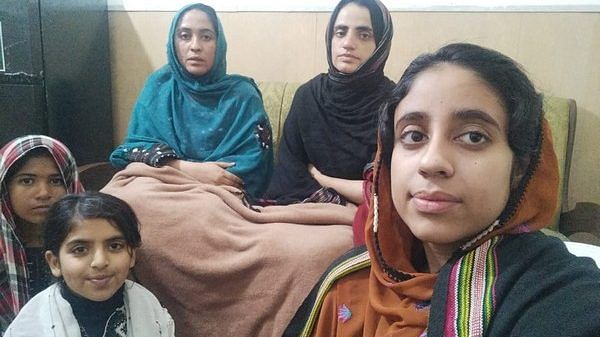For the past two decades, Pakistan’s troubled southwestern province of Balochistan has been the scene of a violent nationalist insurgency, accompanied by enforced disappearances, extrajudicial killings, bombings, and protests that have sadly become the norm. Yet, there is hardly any awareness or debate on these issues outside Balochistan. However, a recent stomach-churning incident sparked unprecedented anger and protests, drawing the attention of the European Union ambassador to Pakistan Riina Kionka, the Norwegian foreign mission in Pakistan, Nobel laureate Malala Yousafzai, Swedish climate activist Greta Thunberg and renowned British-Pakistani author and journalist Mohammed Hanif returning his award Sitara-e-Imtiaz, the third-highest civilian award in Pakistan, in protest against violence on Baloch marchers.
It all began on 23 November with the tragic death of Balaach Mola Bakhsh, a 24-year-old man whose relatives claim he was forcibly disappeared by counterterrorism police on the night of 29 October. Nearly a month later, he was presented before a court in his hometown of Turbat, a southern district bordering Iran. Shockingly, he was shot dead while in police custody between the nights of 22-23 November. This incident sparked a massive protest, which later transformed into a march moving toward Islamabad.
The unprecedented march, which garnered support from thousands along its route from Turbat to Islamabad, was led by Baloch women. Among the participants were many Baloch women and children, a significant number of whom have missing husbands, brothers, cousins, and fathers. Tragically, these women and children live in uncertainty, unsure if they are widowed or orphaned. As they marched towards Islamabad, their collective demand for an end to enforced disappearances and extrajudicial killings in Balochistan echoed loudly and powerfully.
Also read: Islamic State rising in Balochistan. Pakistan doesn’t have the resources to win this fight
Betrayal by Islamabad
When the marchers reached Islamabad on 20 December evening, police used tear gas and cold water cannons to disperse them. 290 people, including protest leader Mahrang Baloch, a young physician by profession, were arrested.
On 21 December, the Islamabad High Court cautioned the police against obstructing the protest. Despite this, the police tried to forcefully deport the marchers to Balochistan, defying the court order. However, they failed, as the resilient Baloch women displayed remarkable strength and determination, refusing to return.
Sadly, rather than welcoming the peaceful Baloch women protesters who demonstrated great courage by marching over a thousand kilometres, police responded with brutality. The victims’ families of forcefully disappeared people are being subjected to a rigorous media trial by journalists in Islamabad demanding them to condemn Baloch armed groups’ targeted killings of Punjabi labourers in Balochistan. Such actions have severe implications for Balochistan’s political and security situation.
The resilient Baloch women, who have suffered immensely due to the ongoing conflict, are disheartened. Yet, they still hold some hope in Islamabad. The history of betrayal and force has not completely eroded the trust of some Baloch youth in Islamabad’s ability to resolve their issues. This trust is why they continue to look to Islamabad.
However, Islamabad’s response has been overwhelmingly negative, disappointing those seeking solutions to long-standing problems. The mistreatment and unjust detention of Baloch women for peaceful protesting add further pain, potentially exacerbating anger and violent insurgency in Balochistan.
Islamabad has been in conflict with the Baloch for two decades. Despite political efforts and economic initiatives, the use of force persists, hindering a meaningful resolution to the Balochistan issue.
Also read: Balochistan is misunderstood. Its stunted development driving Pakistan back onto the rocks
Pushing youth toward insurgency
After two decades, one would expect Islamabad and Rawalpindi to understand the Baloch mindset, which is akin to a spring that may temporarily deform under force but returns to its original shape, or even with increased resistance, once the force is removed. The recent use of force against Baloch women, children, and other peaceful participants of the long march in Islamabad has prompted Baloch to come to the streets in Balochistan and Karachi. Since 2000, a pattern has emerged where youth, feeling unheard or denied the opportunity to express themselves, embrace militancy instead of joining hardline political groups.
This approach validates the grievances of disgruntled Baloch youth, who argue that Islamabad does not support peaceful struggle.
Every non-political action against the Baloch intensifies feelings of deprivation, widening the divide between the federation of Pakistan and Balochistan, and alienating Baloch youth. The Baloch are deeply protective of their rights, culture, identity, and especially the dignity of their women and children. Such mistreatment only heightens their sensitivity and potential for retaliation.
A poignant example is Shari Baloch, a 31-year-old schoolteacher with a degree in Zoology and a mother of two. Despite her affluent background, with her husband working as a dentist and her brothers holding key government positions, Shari was deeply affected by security forces’ actions in Balochistan. In April 2022, she carried out a suicide attack in Karachi, targeting Chinese nationals.
Under the barrel of guns, enduring cold water in freezing temperatures, facing tear gases and false police cases, the courage and resilience of young Baloch women are unparalleled in Pakistan. Similar scenes have been seen in neighbouring Afghanistan and Iran, which explains why the Baloch long march to Islamabad has attracted international attention, from figures like Malala to Thunberg and Kionka.
The author is a freelance journalist and researcher from Pakistan. He tweets @KiyyaBaloch. Views are personal.
(Edited by Prashant)



